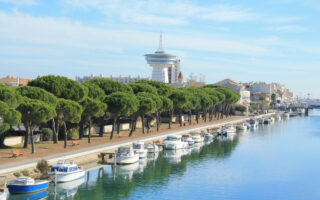La Chasse/Hunting in France: Avoid It or Embrace It? (Part 1/2)
Essential Reading


Few subjects energise emotional debate more than the hunting of animals. Some folks love it; others hate the very word. This two-part series does not make any political or subjective comments. Instead, it offers practical information to help you avoid or embrace La Chasse.
An Introduction to La Chasse
In France, hunting is a legal, highly organised activity. It is controlled by the Fédération Nationale des Chasseurs (FNC), which operates at a national level and through regional and departmental federations. Each of these entities has a public service mission in managing wildlife and their habitats.
The Role and Activities of the FNC
As the representative body of all French territories, the FNC is approved for the protection of the environment. It aims to ensure:
- the promotion and defence of hunting,
- its representation with national and European authorities,
- the link with regional and departmental federations of hunters.
It is the interlocutor of public and political authorities for:
- regulations and legislation,
- European and international issues,
- communication, technical and scientific expertise,
- compensation for damage caused by big game.
These statistics give you an idea of the scope and numbers involved in organised hunting:
- Regional Federations: 13
- Departmental/interdepartmental Fédération des Chasseurs (FDC): 94
- Elected volunteers within the federations: 25,000
- Hunting associations present throughout the rural territory: 70,000
- Practising hunters: 1+ million
- Volunteers: 500,000
- Employees (including 40 at the FNC): 1,500
- Euros contribution from hunting to nature: 2.9 billion
- People with a hunting license in France: 5 million

Hunting and Your French Property
Legislation in 1844 regulated the right to hunt by establishing a hunting licensing process and fixing approved hunting periods. Its article L.422-1 of the Code de l’Environment also stated that ‘no one has the right to hunt on the property of others without the consent of the owner or his heirs’. This caused difficulties with fragmented hunting practices in some parts of France, which led to the creation of subsequent legislation.
The Loi Verdeille, passed in 1964, enabled the establishment of Associations (Inter) Communales de Chasse Agréées(ACCA or AICA).
What is An ACCA?
The Association Communale de Chasse Agréée is open to grouped hunters within a local community (commune). There can only be one ACCA per commune. They are regulated by the local Prefet and operate on a five-year cycle. ACCAs are present in either an obligatory or discretionary form in over 70 departments.
Their purpose is to:
- Promote responsible hunting
- Ensure good hunting management
- Streamline the administrative organisation
- Welcome hunters
- Recognise the need for the development and management of wildlife. Each ACCA is obliged to set aside a minimum of 10% of its territory as a hunting reserve. Hunting is prohibited in these zones, and wildlife is nurtured.
In principle, all land in the commune supporting an ACCA falls within the scope of the association. However, there are some key exceptions.
Where an ACCA Cannot Be Established
An ACCA does not encompass:
- Land located less than 150 metres from a dwelling (hunting is prohibited there. The right to hunt belongs, normally, to the owner. And, in any event, shots cannot be fired in the direction of the dwelling),
- a single area greater than a fixed threshold, generally 20 hectares of open land, and where the owner does not wish to join the ACCA. (There are variations to this, which the prefecture or Fédération des chasseurs (FDC) can explain),
- any land belonging to the SNCF, to the state, to the region, to the department or the commune,
- areas surrounded by an impassable fence,
- any land that is the object of opposition from the owner who, due to personal convictions, prohibits hunting (see below).
Click on this link for more information about ACCAs.
Removing your Property from an ACCA
Inevitably, there was a backlash against the restrictions placed on owners who did not want hunting over their land. Legally backed protests eventually reached the European Court of Justice, which in 2000 passed judgement with the Chassagnou Act.
The Act modified French law on hunting rights, enabling French property owners to opt out of their local ACCA, claiming ‘au nom de convictions personnelles’ (in the name of personal convictions).
Follow this link for more information on the Chassagnou case.
If your property is part of an ACCA/related hunting association, you can apply to opt-out. The procedure requires these steps to be taken.
- You must send a recorded delivery letter (lettre recommandé avec accusé de réception) to the president of the Fédération départementale des chasseurs (which oversees activities of the ACCAs) in your department asking that your land be withdrawn from the ACCA area. Copy your local mayor(s) of the municipalities concerned. In some cases, you will need to complete a simple form, which is obtainable from your Mairie or prefecture. In addition, you must:
- Supply the date of creation of your local ACCA and the name and address of its president.
- Include plans showing your plot(s) with their number(s) and relationship to the immediate surroundings. Click on this government link for detail on the plots in your surrounding area.
- You will need notaire certified copies of your property’s purchase (title deeds) which proves ownership. (Normally, these can be obtained free from your notaire.)
- The timing of your application is important. Every ACCA has a five-year renewable contract with its commune. Your request will not be finalised until the local association(s) five-yearly renewal date. You should ensure that your application is sent six months before the next five-yearly ‘birthday’ for the ACCA(s) concerned. If not, it takes effect at the end of the following contract period.
Click on this link for further guidance on ACCAs and Opting-out.
How Does the Decision-making Process Work?
Once your application has been made to the Fédération de chasse (FDC), a consultation period will begin with the ACCA(s)/parties concerned involved. Unless exceptional circumstances exist, your application will be successful, and the FDC must provide you with an attestation excluding your land from the ACCA area.
NB Opting out of your ACCA/local hunting association does not eliminate the possibility of hounds running across your land in pursuit of prey.
This link will provide you with further detail on the procedure involved.
If your application is refused, the decision can be appealed to the departmental tribunal. In this rare event, seeking legal advice on how to term your appeal is advisable. Click on this link for further guidance.
When you receive the attestation excluding your land from the ACCA territory, you must post ‘chasse interdite’ signs (which are inexpensive to buy and available in most bricolage stores) on your land borders. You must also agree to the responsible management of animals likely to cause damage and the regulation of the species present on your land which cause damage.
NB An owner who has lodged an opposition claiming personal convictions opposed to hunting cannot ask for the validation of a hunting permit.
What Happens if my Municipality does not have an ACCA?
Your property may lie in an area where a Société de Chasse (rather than an ACCA) operates. If so, you should write to the society’s president, stating that you do not authorise hunting on your land. Working on the basis that a belt and braces approach is always preferable, you should copy your local Mairie and the departmental FDC.
Association Pour la Protection des Animaux Sauvages
You can also consider using all or part of your land to create a sanctuary (refuge) for wild animals and fauna where hunting is automatically prohibited. This can be done through the Association Pour la Protection des Animaux Sauvages(ASPAS). This link will give you further information on the procedures involved.

Hunting and Outdoor Pursuits
Hunting in several forms takes place throughout France. If you are not a hunter but do enjoy outdoor pursuits, it pays to be familiar with the types of hunting practised in your area and when they occur so that you can avoid being in the vicinity on hunt days.
Hunting Seasons
The department hunting season dates are set for each species by prefectural order. However, this does not necessarily mean hunting is impossible before these dates. A specific local context may authorise hunting in advance or over a longer period, e.g. a reported overpopulation of a particular species in an area or farmers’ crop damage.
The easiest ways to find out about general hunting dates in your location are to ask at your local Mairie or check with your departmental FDC. You can also search online using this link.
This link to the Tarn et Garonne departmental hunting seasons gives you an idea of how the timetable is set out.
Your Mairie can also provide you with information on local hunting days or put you in touch with the president of your local ACCA/hunting association. They can advise when a hunt will take place, the species hunted, and in which direction prey will be pursued. This is particularly helpful in the case of la battue, the driven hunt.
La battue involves hounds being released in a zone where game, usually wild boar or deer, are present. The idea is for the hounds to flush the game towards and across a line of waiting hunters. Whilst the prey may not always follow the rules and run at a tangent, in general terms, it’s safer to plan your outdoor activities in an area that lies behind the hounds’ start point. Better still, choose a different place altogether.
Minimising Risk of Hunting Accidents
Mostly common sense, here’s a list of practical precautions to help minimise risks:
- Be on the lookout for fluorescent clothing. In most departments, hunters are obliged to wear an item of fluorescent clothing (usually a hat or jacket) for large game shooting. If you spot some, the likelihood is that hunting is in process.
- During collective big game hunts, hunters must leave signs on or in the immediate vicinity of public roads. The wording is usually ‘Attention! Chasse en cours’. Avoid these areas.
- Be aware of your local hunting practices and avoid using the same area on hunt days.
- Wear fluorescent clothing. Bright orange makes sense because it’s the colour hunters use.
- If you are dog walking, consider fitting your dog with a fluorescent jacket. If horse riding, a fluorescent saddle cloth.
- Keep calm if you find yourself in the middle of a battue and hounds come towards you. They are single-minded and will be focused on their prey. Head in the direction they have come from.
- If you see/hear hunters unexpectedly, don’t be bashful about making noise to alert them of your presence.
Hunting is part of life in France. There will always be controversy surrounding the subject. Supporters will say that it is an essential activity to keep the balance of nature in check, particularly in terms of wild boar, fox and deer. Anti-hunters believe hunting is a cruel, needless act that interferes with nature’s natural balance.
Despite the endless debate, hunting is here to stay. The second article in this two-part series looks at ways to get involved; the regulations, organisations, costs and practicalities involved.
[The author’s information supplied in this article is given in good faith based on their experience and the supplementary website material gathered during the research process.]
Share to: Facebook Twitter LinkedIn Email
By Beth Haslam
Leave a reply
Your email address will not be published. Required fields are marked *




REPLY